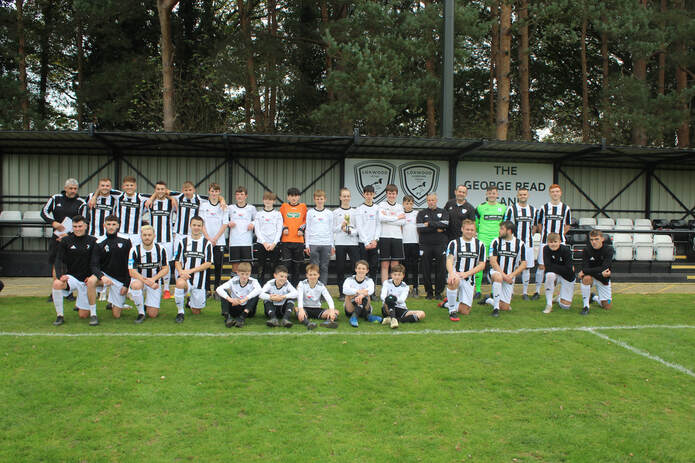LYFC Whistleblowing Policy
Loxwood & Kirdford Youth FC is committed to all aspects of the FAs safeguarding policies to ensure that all children are protected at all times.
This includes (but is not limited to):
• Physical Abuse - A child is physically hurt or injured by an adult, or an adult gives alcohol or drugs to a child or young person;
• Neglect - A child’s basic physical needs are consistently not met or they are regularly left alone or unsupervised;
• Sexual Abuse - An adult or peer uses a child or young person to meet their own sexual needs;
• Emotional Abuse - Persistent criticism, denigrating or putting unrealistic expectations on a child or young person;
• Bullying - Persistent or repeated hostile and intimidating behaviour towards a child or young person.
• Hazing - Hazing is any action or situation, with or without the consent of the participants, which recklessly, intentionally, or unintentionally endangers the mental, physical, or emotional wellbeing of a child or young person. Hazing is not tolerated.
Actions of abuse can be committed by anyone. This can be (but is not limited to) coaches, helpers, volunteers, officials, players and spectators. It is critical that ANY suspicions of abuse committed by ANYONE are reported so they can be investigated.
Whistleblowing in a safeguarding context means revealing and raising concerns over misconduct or malpractice within an organisation, or within an independent structure associated with it. It can be used as an early-warning system or when it’s recognised that appropriate actions have not been taken.
This approach or policy is adopted in many different walks of life. Any adult or young person with concerns about conduct towards a child or young person can use whistleblowing.
This can be done in a number of ways. Loxwood & Kirdford Youth FC has an appointed welfare officer: Istvan Gulyas
This includes (but is not limited to):
• Physical Abuse - A child is physically hurt or injured by an adult, or an adult gives alcohol or drugs to a child or young person;
• Neglect - A child’s basic physical needs are consistently not met or they are regularly left alone or unsupervised;
• Sexual Abuse - An adult or peer uses a child or young person to meet their own sexual needs;
• Emotional Abuse - Persistent criticism, denigrating or putting unrealistic expectations on a child or young person;
• Bullying - Persistent or repeated hostile and intimidating behaviour towards a child or young person.
• Hazing - Hazing is any action or situation, with or without the consent of the participants, which recklessly, intentionally, or unintentionally endangers the mental, physical, or emotional wellbeing of a child or young person. Hazing is not tolerated.
Actions of abuse can be committed by anyone. This can be (but is not limited to) coaches, helpers, volunteers, officials, players and spectators. It is critical that ANY suspicions of abuse committed by ANYONE are reported so they can be investigated.
Whistleblowing in a safeguarding context means revealing and raising concerns over misconduct or malpractice within an organisation, or within an independent structure associated with it. It can be used as an early-warning system or when it’s recognised that appropriate actions have not been taken.
This approach or policy is adopted in many different walks of life. Any adult or young person with concerns about conduct towards a child or young person can use whistleblowing.
This can be done in a number of ways. Loxwood & Kirdford Youth FC has an appointed welfare officer: Istvan Gulyas
Loxwood Youth FC recommendation in all instances where abuse is suspected is that the welfare officers are contacted via email to [email protected]. All reports will be dealt with the utmost confidentiality.
Alternatively, concerns can also be reported via the following channels:
• by calling 0800 169 1863 and asking for The FA’s safeguarding team, or via email to: [email protected], or
• Direct to the local Police or Children’s Social Care services, or
• The Child Protection in Sport Unit at [email protected], or
• The NSPCC Helpline on 0808 800 5000 or email [email protected]


